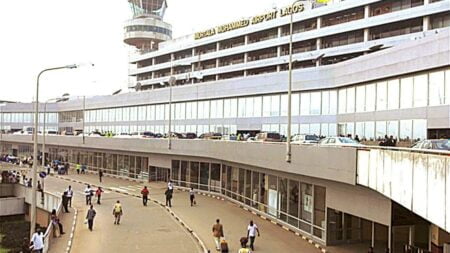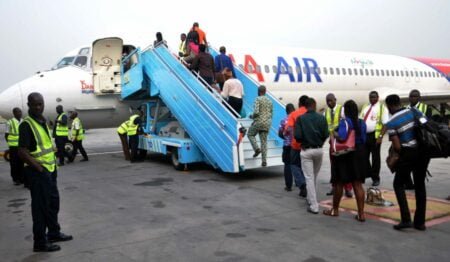According to the Central Bank of Nigeria (CBN), aggregate foreign exchange (FX) inflows into the Nigerian economy fell 17.2 percent to $6.58 billion in April 2022, down from $7.95 billion the previous month.
The CBN announced this in its April monthly report on forex flows in the economy.
According to the report, “the economy recorded a lower net foreign exchange inflow of $2.63 billion, down from $3.53 billion the previous month.” In April 2022, aggregate foreign exchange inflows into the economy fell 17.2 percent to $6.58 billion, down from $7.95 billion in March.
Similarly, total foreign exchange outflow decreased by 11.3 per cent to $3.95 billion from $4.45 billion in the preceding month.
The report said further analysis showed that forex inflows through the bank declined by 25.6 per cent to $2.47 billion from $3.32 billion, mainly due to a 54.3 per cent decrease in non-oil components as a result of inflows of $1.25 billion proceeds from government debts in the preceding month, as well as TSA, third-party receipts and other official income.
Autonomous inflows also decreased by 11.4 per cent to $4.11 billion from $4.63 billion due to a decline in invisible purchases, which included ordinary domiciliary accounts, which accounted for $1.33 billion and non-oil export receipts pegged at $490 million.
Foreign exchange outflows through the bank declined by 19.3 per cent to $2.86 billion from $3.54 billion in March, due largely to decreases in foreign exchange sales at the Investors and Exporters window, Small and Medium Enterprises intervention (SMEI), and interbank/invisible foreign exchange windows.
Autonomous outflows increased by 20 per cent to $1.09 billion from $910 million in March because of increased invisible imports.
Consequently, net outflows of $390 million were recorded through the bank in April 2022, compared with net outflows of $230 million in the previous month.







